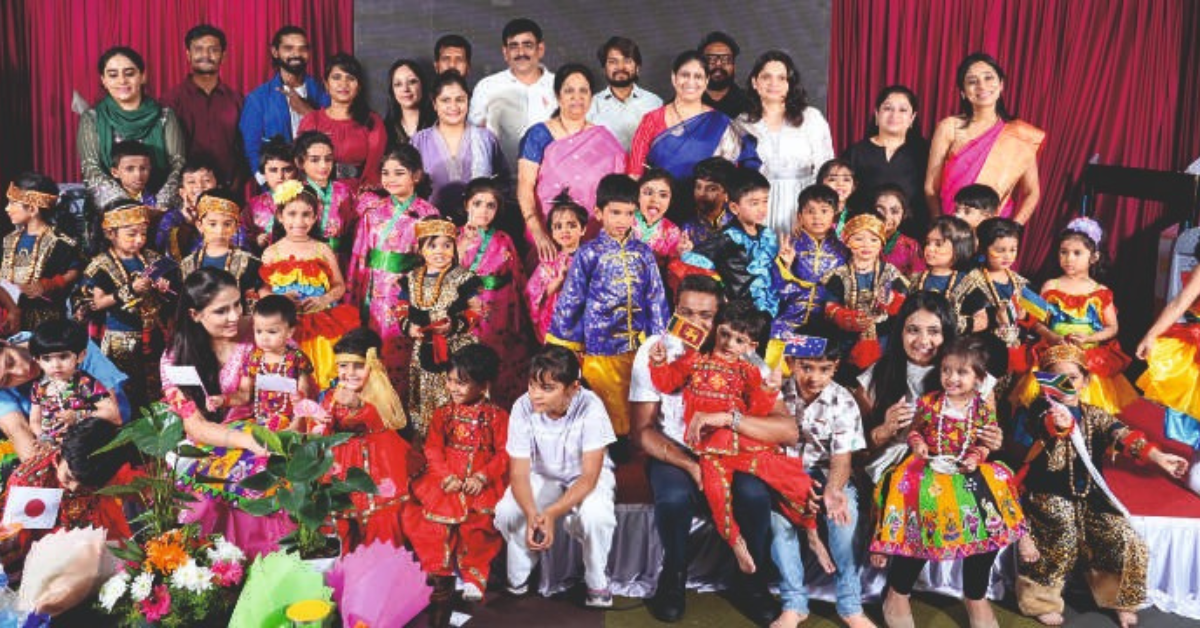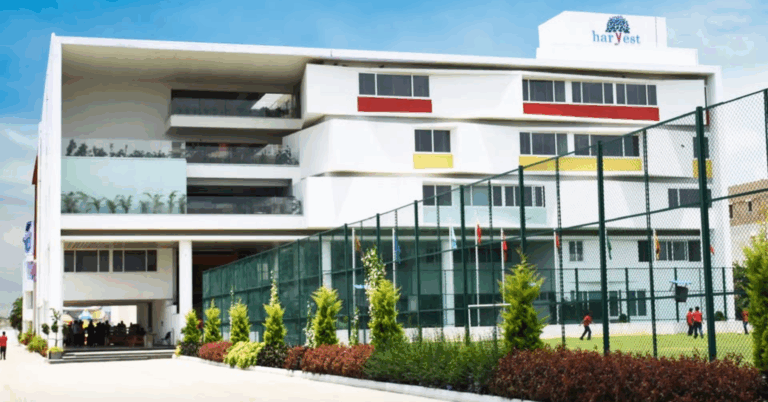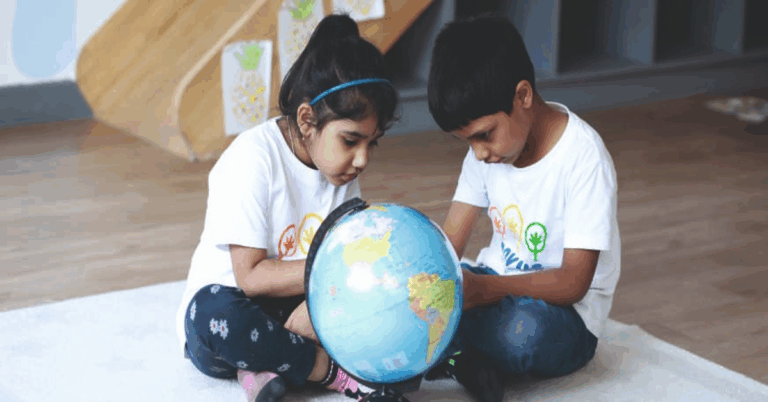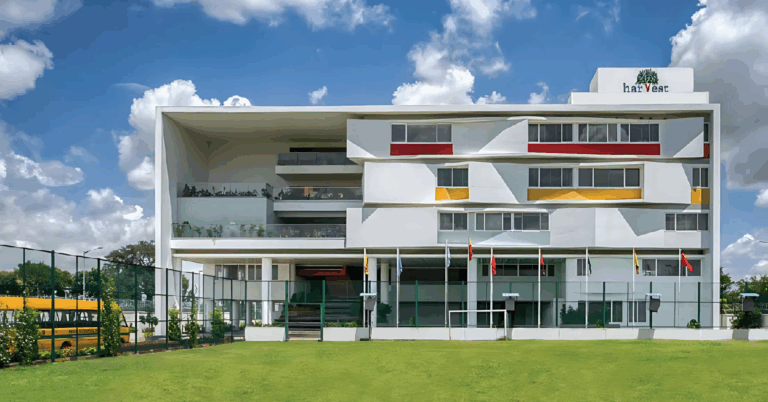Discover the Best Pre Schools in Yelahanka: A Guide for Parents
Pre Schools In Yelahanka: Choosing the right preschool is one of the most significant early decisions a parent can make. In the rapidly developing neighborhood of Yelahanka, Bangalore, this decision becomes even more crucial as the number of educational institutions grows. Parents seek a preschool that not only provides a strong foundation in academics but also nurtures creativity, confidence, and compassion in children. With various options available, it’s essential to understand what sets the best pre schools in Yelahanka apart.
Why Yelahanka Is Ideal for Preschool Education
Yelahanka, located in the northern part of Bangalore, has seen exponential growth in terms of residential and educational infrastructure. Its transformation into a well-connected, family-friendly locality makes it an excellent place for early education. The area is characterized by green spaces, reduced congestion compared to central Bangalore, and a growing population of young families. This demographic shift has led to an increase in demand for quality preschools. Yelahanka offers an ideal blend of urban convenience and a serene environment—perfect for nurturing young minds. Its proximity to major business hubs and the airport also makes it a practical choice for working parents. The presence of reputed schools, hospitals, and recreational spaces enhances the overall learning ecosystem for preschoolers.
Key Qualities to Look for in a Preschool
When evaluating pre schools in Yelahanka, parents should consider several factors beyond just proximity. The foundation laid during early childhood has a lasting impact on a child’s academic and personal development.
Curriculum and Teaching Philosophy
A good preschool must have a well-rounded, age-appropriate curriculum. Leading preschools in Yelahanka adopt methods like Montessori, Reggio Emilia, or integrated approaches that combine structured learning with creative freedom. At this stage, children should engage in activities that develop fine motor skills, early literacy, numeracy, and problem-solving through play and exploration. The best curriculums also introduce social-emotional learning to help children manage emotions, interact positively with peers, and build confidence. Language development and exposure to multiple languages can also be highly beneficial in the early years.
Qualified and Caring Educators
Teachers play a vital role in shaping a child’s preschool experience. Effective educators in early childhood settings are not only academically qualified but also compassionate and patient. Look for preschools where teachers hold diplomas or degrees in early childhood education and undergo regular training. Equally important is the student-teacher ratio. A low ratio ensures each child gets individual attention, which is crucial during formative years.
Safe, Stimulating Learning Environment
The physical environment of a preschool should be secure, clean, and designed to encourage exploration. Classrooms should be colorful and engaging, with toys, books, and learning materials within reach. Outdoor play areas, sand pits, and gardens allow children to interact with nature and develop physical coordination. Safety measures like CCTV monitoring, clean washrooms, child-safe furniture, and gated premises are essential. A hygienic setting with child-friendly infrastructure promotes both health and learning.
Transparent Communication and Parent Involvement
Top preschools in Yelahanka prioritize strong communication with parents. Daily updates, monthly newsletters, and regular parent-teacher meetings keep families informed of their child’s progress. Some centers also involve parents through events, workshops, and volunteer opportunities. When parents and educators collaborate, children benefit from consistent support and encouragement both at home and at school.
Readiness for Formal Schooling
A quality preschool prepares children for a smooth transition into formal schooling. Readiness includes familiarity with classroom routines, early reading and math skills, and emotional preparedness. Preschools that track developmental milestones and provide periodic assessments without pressure help identify each child’s strengths and areas for improvement. Some institutions also guide parents during school admissions by helping with entrance preparation and interview readiness.
Novus Early Learning Centre: A Leading Preschool in Yelahanka
Among the many options available, Novus Early Learning Centre stands out as one of the best pre schools in Yelahanka. Rooted in a child-first philosophy, Novus focuses on nurturing each child’s potential through a thoughtfully curated curriculum and an enriching environment.
Holistic Learning Model
Novus integrates play-based learning with foundational academic skills. Children engage in storytelling, phonics, creative arts, and beginner-level math in a joyful, interactive manner. The curriculum is designed to develop language, cognitive, motor, and socio-emotional skills without overwhelming the child. Special attention is given to experiential learning, where children learn by doing—be it gardening, cooking simple snacks, or observing nature.
Experienced Faculty and Personalized Attention
The teaching team at Novus comprises trained professionals who are passionate about early education. Teachers maintain a warm, approachable presence, ensuring children feel safe and encouraged to express themselves. With a low student-to-teacher ratio, children receive personalized attention, and their individual learning paths are respected and supported.
Purpose-Built Facilities
Novus is equipped with spacious, airy classrooms filled with natural light and sensory-rich materials. The outdoor space includes a safe playground and a nature zone, encouraging physical movement and free play. Indoor activity zones cater to music, dance, role-play, and quiet reading. The entire environment is structured to promote autonomy and curiosity among children.
Emphasis on Safety and Hygiene
Safety is paramount at Novus. The premises are fully secured, with regular sanitization, age-appropriate furniture, and child-safe infrastructure. Entry and exit are monitored, and hygiene protocols are strictly followed to ensure the well-being of every child. From temperature checks to safe food practices, no detail is overlooked.
Strong Parent-School Collaboration
Novus fosters a culture of transparency and collaboration. Parents are regularly updated on their child’s growth through digital platforms, learning portfolios, and meetings. Events such as family day, storytelling sessions, and art exhibitions involve parents as active participants in their child’s educational journey. Feedback is valued, and concerns are addressed promptly and respectfully.
Preparing for Future Success
Graduates of Novus are well-prepared to enter reputed primary schools with confidence. By focusing on foundational skills and emotional resilience, Novus ensures that children are not just academically ready but also socially adaptable and self-assured. Alumni parents often speak of how their children transitioned smoothly into formal schooling and excelled in their early years.
FAQs About Pre Schools in Yelahanka
Q1: What is the ideal age to enroll a child in preschool?
Most preschools in Yelahanka accept children starting from 1.5 to 2.5 years old. This is the age when children begin to develop social awareness and language skills, making it a good time to start structured play and learning.
Q2: How do I know if a preschool is safe for my child?
Visit the school and check for basic safety features like secure entrances, CCTV cameras, childproofed furniture, and clean facilities. Ask about their emergency protocols, hygiene routines, and teacher background verification process.
Q3: What are the fees for preschools in Yelahanka?
Fees vary depending on the curriculum, facilities, and reputation of the preschool. On average, preschools in Yelahanka charge between ₹50,000 to ₹1,50,000 per year. Some schools may offer installment options or include daycare services.
Q4: Is play-based learning better than traditional academics?
Yes, for early years education, play-based learning is generally more effective. It fosters creativity, critical thinking, and emotional development while laying a foundation for academic skills. Children learn best through hands-on, engaging experiences.
Q5: How can I support my child’s preschool learning at home?
Maintain consistent routines, encourage storytelling, engage in creative play, and limit screen time. Regular conversations with teachers and involvement in school activities also help reinforce learning and build confidence.







